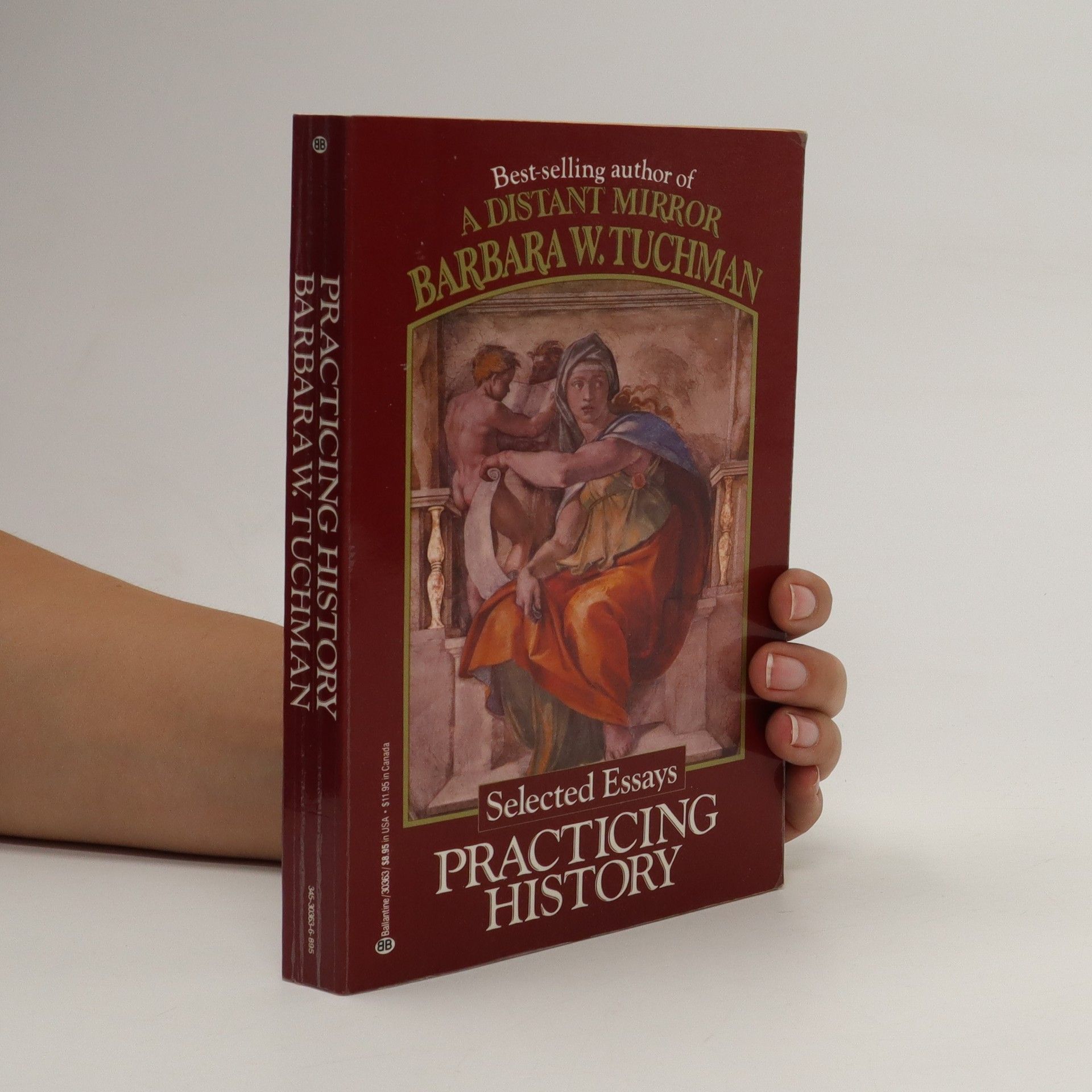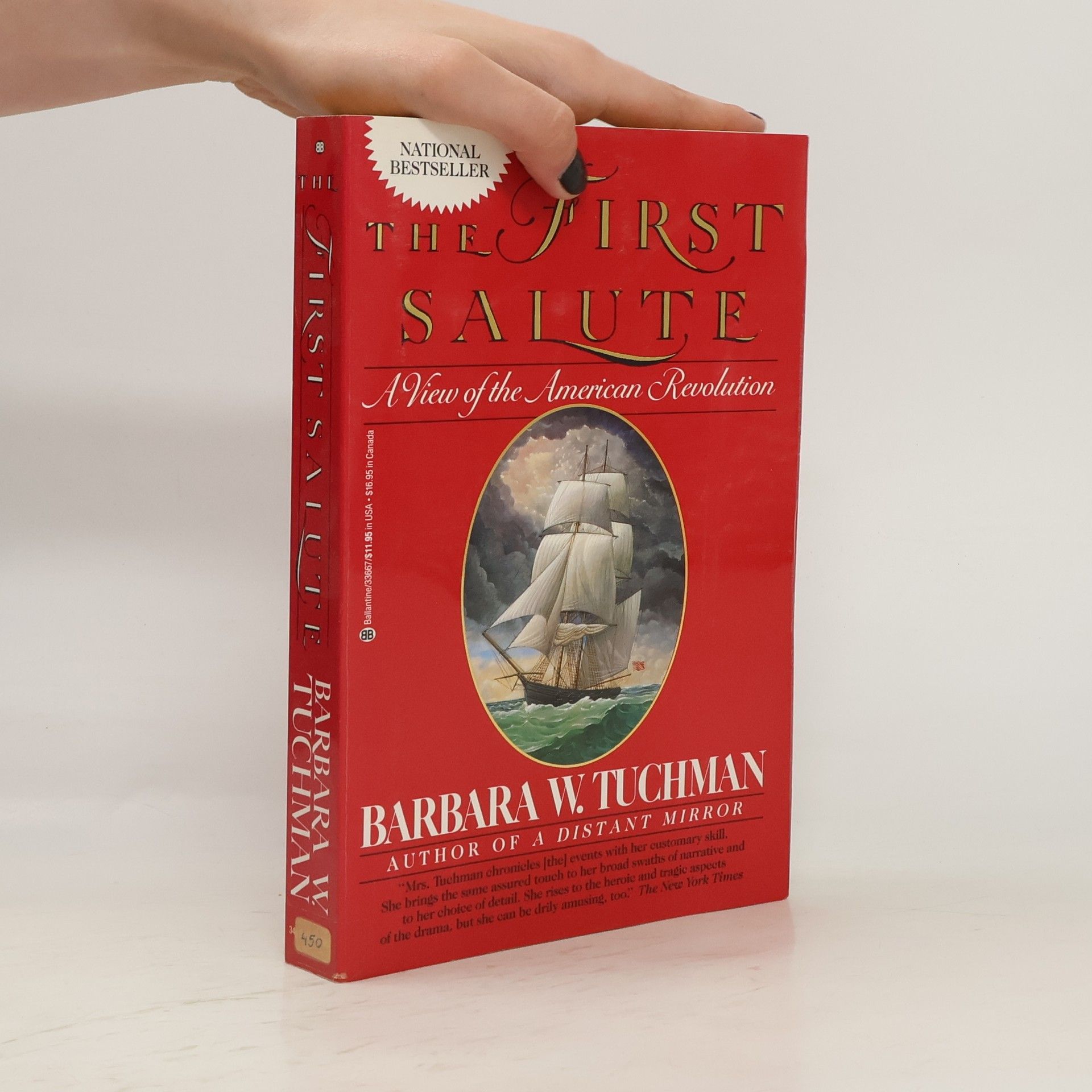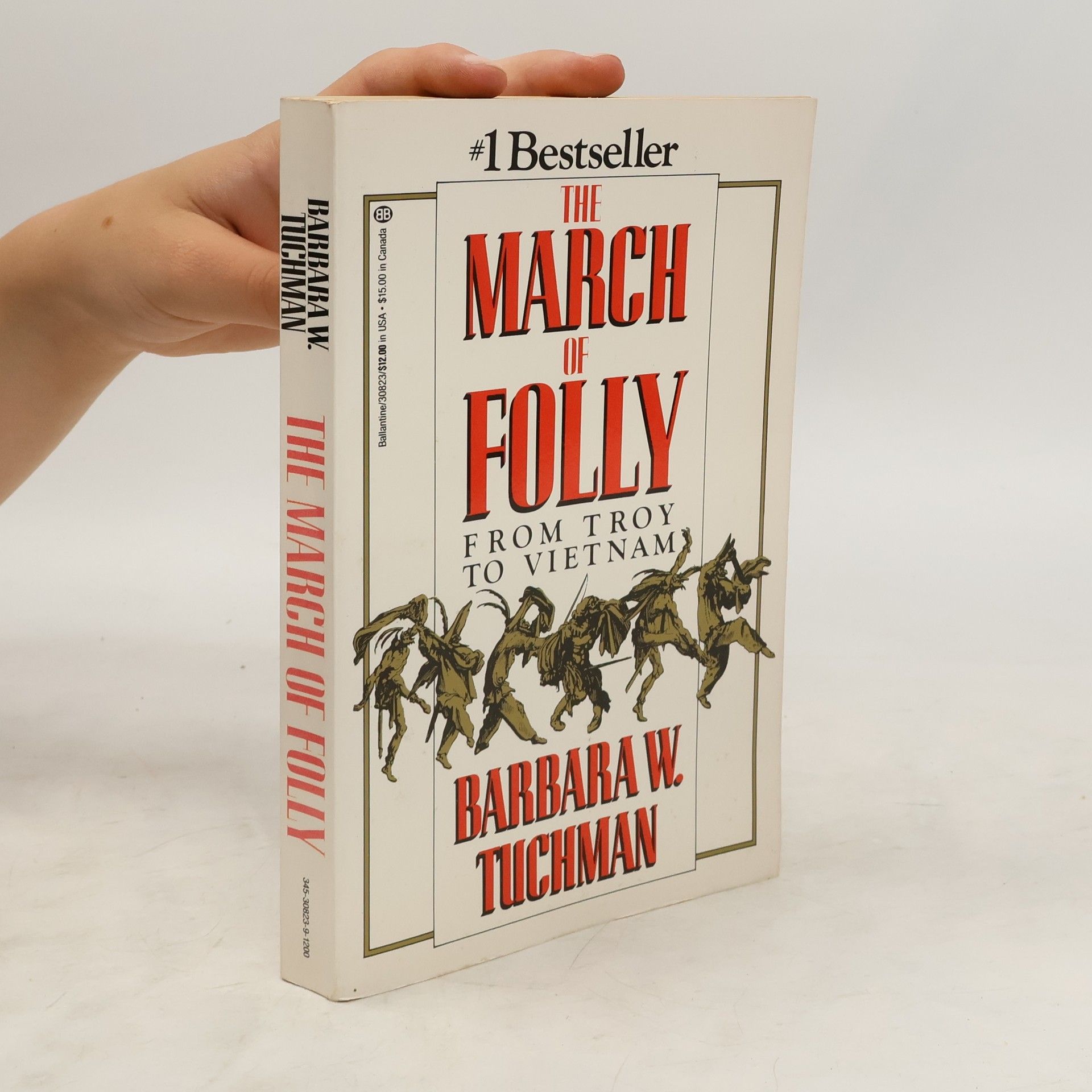Historie prvního měsíce 1. světové války, za jejíž vylíčení získala autorka Pulitzerovu cenu. Jejím osobitým rysem je snaha události nejen registrovat a zaznamenat, ale dobrat se jejich smyslu a příčin. Podařilo se jí věrohodně zachytit až nepochopitelně rychlou proměnu mezi mírem, v jehož trvanlivost tehdy všichni věřili, a téměř všeobecným nadšením pro válku. Zároveň Tuchmanová čtenáře nenudí: dosahuje toho shromažďováním velmi životných a ilustrativních faktů, jimiž klasický historik spíše pohrdá nebo je uvádí v poznámkách pod čarou. Nezabývá se totiž jen politickými a vojenskými špičkami, ale i obyvatelstvem evropských velkoměst. Výsledkem je plastický obraz událostí, dobře srozumitelný i běžnému čtenáři.
Barbara Tuchman Knihy
Barbara Wertheim Tuchman byla americká historička a autorka samouk, která dvakrát získala Pulitzerovu cenu. Proslavila se zejména dílem „The Guns of August“ (1962), které se věnovalo předehře a prvnímu měsíci první světové války. Tuchmanová se soustředila na psaní populární historie. Její poutavé, dramatické vyprávění pokrývalo různorodá témata od 14. století po první světovou válku a prodalo se jí miliony výtisků. Její styl je známý svou čitelností a schopností vtáhnout čtenáře do událostí.







Zrcadlo vzdálených časů. 14. století - století pohrom
- 719 stránek
- 26 hodin čtení
Kniha B. Tuchmanové (1912–1989), držitelky dvou Pulitzerových cen, překvapuje čtivostí a silou obraznosti, s níž nás vtahuje do dějů konce středověku v Evropě. Tuchmanová s fantastickým smyslem pro historický detail představuje pestré panoptikum „divadla světa“ 2. poloviny 14. století, plné barvitosti, excesů, krutosti, moru a útlaku prostého lidu, ale také hýření, nespoutaných radovánek a složité politiky. Podle časopisu Observer je její text živým pohledem moderního historika na dobu Chaucera, Petrarky a Boccaccia, na období plné bizarních předsudků, náboženských poutí a revolučních změn. Tato historická kniha, analyzující přelomové údobí evropských dějin, se čte jako strhující a zábavný příběh. Pro oživení děje Tuchmanová často nechává hovořit dávné kronikáře, jejichž jazyk a barvitá líčení přibližují dobu a myšlení lidí vzdálených dnešku. Ačkoliv jde o fundovanou historickou studii, text připomíná životopisný román, neboť zachycuje konkrétní lidský osud – životní příběh mocného pána a rytíře, francouzského velmože Enguerranda VII. de Coucy.
The narrative explores the emergence of modern China, offering a unique perspective through the experiences of an exceptional American. Tuchman’s meticulous research and engaging storytelling illuminate the complexities of this transformative period in Chinese history, providing readers with an insightful understanding of the cultural and political shifts that shaped the nation. This Pulitzer Prize-winning work stands out for its depth and clarity, making it a significant contribution to historical literature.
During the fateful quarter century leading up to World War I, the climax of a century of rapid, unprecedented change, a privileged few enjoyed Olympian luxury as the underclass was “heaving in its pain, its power, and its hate.” In The Proud Tower , Barbara W. Tuchman brings the era to vivid life: the decline of the Edwardian aristocracy; the Anarchists of Europe and America; Germany and its self-depicted hero, Richard Strauss; Diaghilev’s Russian ballet and Stravinsky’s music; the Dreyfus Affair; the Peace Conferences in The Hague; and the enthusiasm and tragedy of Socialism, epitomized by the assassination of Jean Jaurès on the night the Great War began and an epoch came to a close.
Degas to Matisse the Maurice Wertheim Collection
- 176 stránek
- 7 hodin čtení
Bequeathed to the Fogg Art Museum in 1950, a galaxy of impressionst and post-impressionist artists - sculptures as well as drawings and paintings.
Celebrated for bringing a personal touch to history in her Pulitzer Prize–winning epic The Guns of August and other classic books, Barbara W. Tuchman reflects on world events and the historian’s craft in these perceptive, essential essays. From thoughtful pieces on the historian’s role to striking insights into America’s past and present to trenchant observations on the international scene, Barbara W. Tuchman looks at history in a unique way and draws lessons from what she sees. Spanning more than four decades of writing in The New York Times Magazine, The Atlantic, Foreign Affairs, Harper’s, The Nation, and The Saturday Evening Post, Tuchman weighs in on a range of eclectic topics, from Israel and Mao Tse-tung to a Freudian reading of Woodrow Wilson. This is a splendid body of work, the story of a lifetime spent “practicing history.” Praise for Practicing History “Persuades and enthralls . . . I can think of no better primer for the nonexpert who wishes to learn history.”—Chicago Sun-Times “Provocative, consistent, and beautifully readable, an event not to be missed by history buffs.”—Baltimore Sun “A delight to read.”—The New York Times Book Review
The Zimmermann Telegram
- 224 stránek
- 8 hodin čtení
“A tremendous tale of hushed and unhushed uproars in the linked fields of war and diplomacy” (The New York Times), from the Pulitzer Prize–winning author of The Guns of August In January 1917, the war in Europe was, at best, a tragic standoff. Britain knew that all was lost unless the United States joined the war, but President Wilson was unshakable in his neutrality. At just this moment, a crack team of British decoders in a quiet office known as Room 40 intercepted a document that would change history. The Zimmermann telegram was a top-secret message to the president of Mexico, inviting him to join Germany and Japan in an invasion of the United States. How Britain managed to inform the American government without revealing that the German codes had been broken makes for an incredible story of espionage and intrigue as only Barbara W. Tuchman could tell it. The Proud Tower, The Guns of August, and The Zimmermann Telegram comprise Barbara W. Tuchman’s classic histories of the First World War era.
Presents a fresh view of the American Revolution, chronicling key events from 1776 to 1781 and assessing the repercussions for America, England, France, and other nations.
Pulitzer Prize–winning historian Barbara W. Tuchman, author of the World War I masterpiece The Guns of August, grapples with her boldest subject: the pervasive presence, through the ages, of failure, mismanagement, and delusion in government. Drawing on a comprehensive array of examples, from Montezuma’s senseless surrender of his empire in 1520 to Japan’s attack on Pearl Harbor, Barbara W. Tuchman defines folly as the pursuit by government of policies contrary to their own interests, despite the availability of feasible alternatives. In brilliant detail, Tuchman illuminates four decisive turning points in history that illustrate the very heights of folly: the Trojan War, the breakup of the Holy See provoked by the Renaissance popes, the loss of the American colonies by Britain’s George III, and the United States’ own persistent mistakes in Vietnam. Throughout The March of Folly, Tuchman’s incomparable talent for animating the people, places, and events of history is on spectacular display. Praise for The March of Folly “A glittering narrative . . . a moral [book] on the crimes and follies of governments and the misfortunes the governed suffer in consequence.”—The New York Times Book Review “An admirable survey . . . I haven’t read a more relevant book in years.”—John Kenneth Galbraith, The Boston Sunday Globe “A superb chronicle . . . a masterly examination.”—Chicago Sun-Times
The March of Folly
- 559 stránek
- 20 hodin čtení
From the distinguished American historian, a consideration of one of the most bizarre and fascinating paradoxes in history - the persistent pursuit by governments of policies contrary to their own interests. It spans 30 centuries, from the fall of Troy to the USA's involvement in Vietnam.



